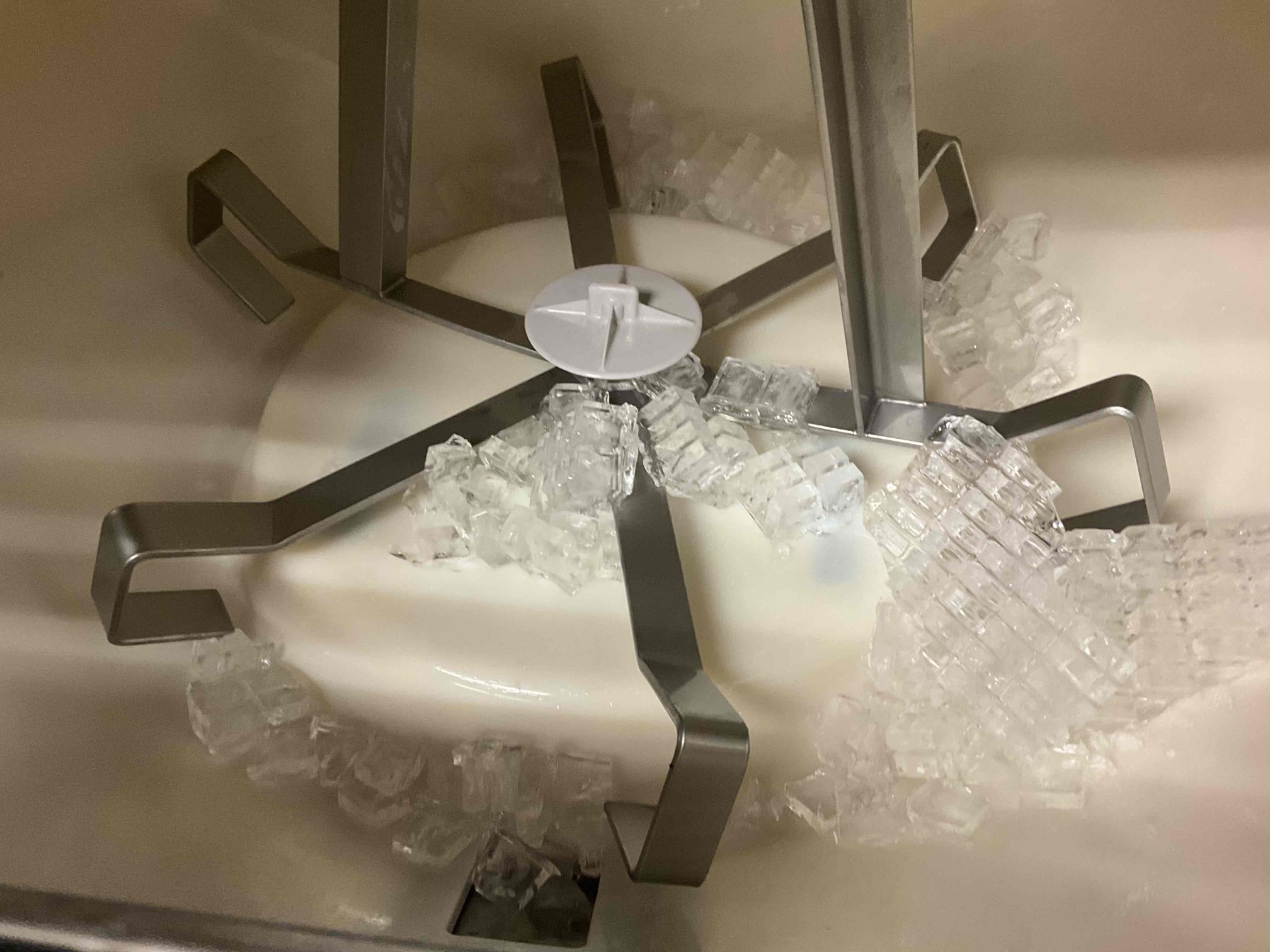proudly serving
the mid-south
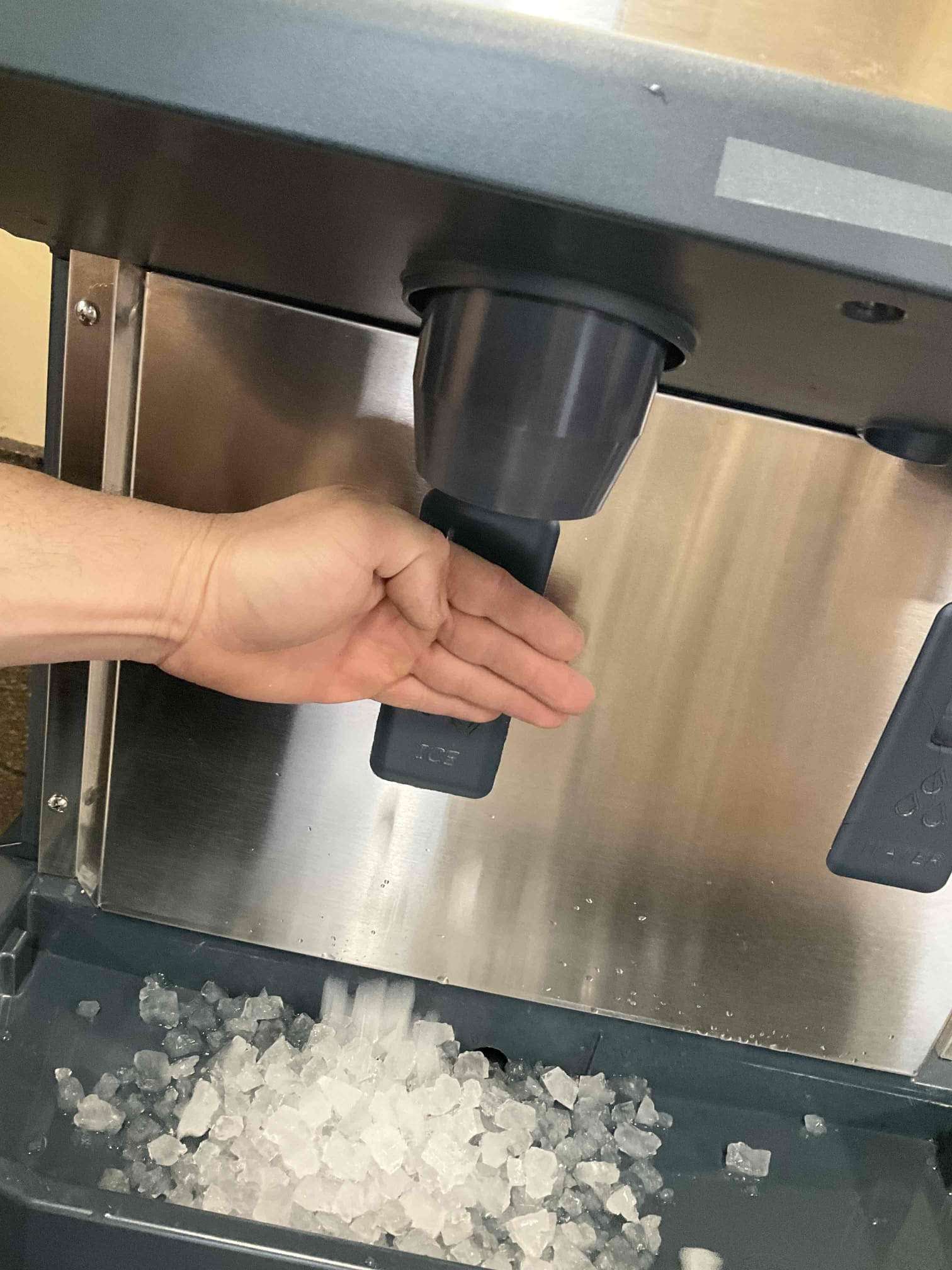
Water Quality Impact on Ice Machines Explained Simply for Better Maintenance
Water quality plays a big role in how well your commercial ice machine works and how long it lasts. When the water has minerals or impurities, it can cause scale buildup, clogs, and even damage inside the machine.
Poor water quality can lead to more breakdowns, higher energy costs, and ice that doesn’t taste or look right.
At Memphis Ice, we know that keeping your ice machine running smoothly means paying attention to what’s in your water. Using clean, filtered water helps prevent common issues before they start.
Whether you own a restaurant or manage a hospital, the quality of your water affects your ice quality and machine performance every day.
Understanding Water Quality and Its Importance
Water quality has a direct effect on how well your ice machines work and how long they last. Knowing what makes water good or bad for ice production helps you protect your equipment and keep ice clean and clear.
What Is Water Quality?
Water quality means how clean and pure your water is. It involves the minerals, chemicals, and particles that water contains.
Not all water is the same. Some cities have hard water with lots of minerals, while others have softer, cleaner water.
Good water for ice machines has low levels of things like iron, chlorine, and hardness minerals. These can cause build-up inside the machine or affect ice taste.
Water that is too pure can also cause problems because it might wear down parts faster. Understanding your water source helps you choose the right filtration and maintenance.
Critical Water Parameters Affecting Ice Machines
Certain parts of water affect ice machines more than others. Here are the key factors to watch:
Hardness: This is about calcium and magnesium. Hard water causes scale buildup, reducing efficiency.
Chlorine and Chloramines: Used in city water to kill germs, but they can damage machine parts and affect taste.
Iron and Manganese: These metals stain parts and make ice look cloudy.
pH Level: Water that’s too acidic or too alkaline can corrode your machine.
Total Dissolved Solids (TDS): High TDS means more impurities that affect ice clarity and machine health.
Keeping these in check with good filtration helps avoid repairs and keeps your ice crystal clear.
Why Water Quality Matters for Ice Production
The quality of water directly impacts the ice you serve and the life of your machine. Poor water leads to hard water scale, which clogs parts and makes machines work harder.
This can cause breakdowns and shorten the machine’s lifespan. Bad water taste also transfers to your ice, making it less appealing to customers.
Clean water keeps ice tasting fresh and machines running smooth.
Common Water Contaminants Affecting Ice Machines
The water you use really shapes how well your ice machine works and how long it lasts. Different contaminants can cause problems like scale buildup, odors, or even equipment failure.
Knowing what to look for helps you keep your machine running smoothly and producing clean ice.
Mineral Content and Hardness
Minerals, especially calcium and magnesium, are common in hard water. When your ice machine uses hard water, minerals build up inside the machine as scale.
This scale clogs pipes, reduces heat transfer, and forces the machine to work harder, using more energy. Over time, it can cause breakdowns or damage parts like the evaporator and water valves.
You might notice your ice becomes cloudy or tastes different with high mineral levels. Using water softeners or filtration can help reduce hardness.
Memphis Ice often recommends routine water testing and treatment plans so your ice machine stays efficient and your ice clear.
Chlorine and Chemical Additives
Chlorine is added to most city water to kill germs. While it keeps water safe, chlorine can cause problems inside ice machines.
It may corrode metal parts or create off-flavors in the ice. Other chemical additives like chloramines, used to keep water fresh longer, can have similar effects.
Though these chemicals help protect your water, untreated levels in your ice machine can lead to faster wear. Filters designed for chlorine removal extend equipment life.
Memphis Ice suggests regular filter replacement and water monitoring to avoid damage and keep taste clean.
Organic Contaminants
Organic matter includes tiny bits of plants, algae, or bacteria in your water. These contaminants can cause microbial growth inside the ice machine if left untreated.
This leads to slime buildup on surfaces and foul odors in the ice. More importantly, it can create health risks if harmful bacteria multiply.
Cleaning schedules that include disinfecting all water-contact parts are critical to keep organic contaminants under control. Using UV sterilizers or advanced filtration helps reduce organic content.
If you notice a bad smell or taste from your ice, it’s time to check on water quality and machine hygiene.
Heavy Metals
Heavy metals like lead, iron, and copper can get into water from old pipes or local conditions. These metals can stain your ice machine’s interior and cause rust or corrosion.
Iron often leaves reddish deposits that clog parts and reduce performance. Lead contamination is a serious health concern, especially for food service.
Even small amounts of heavy metals reduce ice quality and machine life. Testing for metals and using certified filters removes these dangers.
Memphis Ice can help you set up the right filtration to handle heavy metals safely.
Effects of Poor Water Quality on Ice Machine Performance
Your ice machine depends on good water to work well and last a long time. When the water quality is low, various problems can slow your machine down and reduce ice quality.
Scaling and Mineral Buildup
Hard water has minerals like calcium and magnesium. These minerals collect inside your ice machine.
Over time, they form a hard layer called scale on parts like the evaporator plates and water lines. This scale makes your machine work harder and use more energy.
If scale keeps growing, it can block water flow and cause damage. Your machine’s ice-making speed will drop, and repairs will cost you more.
Regular cleaning helps, but avoiding hard water buildup in the first place saves more time and money.
Impact on Ice Clarity and Taste
Impurities in poor water affect ice quality. When water contains minerals and organic matter, your ice cubes might look cloudy or have a strange taste.
This hurts customer satisfaction, especially in restaurants or bars. Clear ice uses purer water.
It freezes evenly and tastes better. If the water is contaminated, it can also encourage bacteria growth.
That’s a health concern you don’t want for your business or customers.
Increased Maintenance Requirements
Dirty water means more frequent maintenance. Scale buildup and clogs wear out parts faster, so your machine breaks down more often.
You’ll need to replace filters and clean components more frequently, adding hassle and expense.
Better water reduces maintenance time and keeps your ice machine running smoothly year-round. You can avoid costly repairs and protect your investment with proper water treatment.
Risks to Health and Safety
Water quality directly affects your ice machine’s operation and the safety of the ice it produces. If water contains impurities or harmful microorganisms, these can multiply inside the machine.
This can lead to contaminated ice that poses serious health risks.
Bacterial Growth and Biofilm Formation
Bacteria love the wet environment inside ice machines. Poor water quality can introduce bacteria that stick to surfaces, forming biofilms.
These slimy layers protect bacteria from cleaning efforts, making them harder to remove. Once established, biofilms can continuously release bacteria into the ice.
If your machine isn’t cleaned regularly and properly, biofilm buildup can grow and spread. This puts anyone who consumes your ice at risk of illness.
Using filtered water and scheduling routine disinfection helps reduce this problem.
Ice Contamination and Food Safety Concerns
Ice is often used directly in drinks and food, so any contamination affects your customers immediately. Contaminants like bacteria, mold, or algae can develop when water isn’t treated or filtered well.
Contaminated ice can cause foodborne illnesses and lead to health code violations. Avoid using tap water that has high mineral content or organic matter.
Installing good water filtration and maintaining your ice machine limit contaminants. Proper cleaning documentation also helps protect your business and customers.
Potential Health Hazards
Consuming ice made from untreated or poorly filtered water can cause stomach sickness, diarrhea, and other infections. Vulnerable groups like children, elderly, or hospital patients face higher risks.
Keeping your ice machine safe protects your customers and your business reputation. Memphis Ice recommends regular water quality checks and maintenance to keep your ice clean and safe year-round.
Preventing and Addressing Water Quality Issues
Keeping your ice machine working well means dealing with water quality problems early and clearly. Using the right tools and habits can help you avoid mineral buildup, clogged filters, and ice that looks cloudy or melts too fast.
Water Filtration and Treatment Solutions
To protect your ice machine, start with good water filtration. Installing a filtration system removes minerals, sediment, and other impurities that cause scale buildup and damage.
Look for filters designed specifically for ice machines, as they target the key contaminants that cause problems.
Some treatment options include:
- Carbon filters to remove chlorine and odors
- Water softeners to reduce hardness caused by calcium and magnesium
- Reverse osmosis systems for thorough purification
Memphis Ice recommends investing in quality treatment systems so your machine uses clean water consistently. This helps your ice stay clear and your machine run efficiently.
Regular Maintenance Practices
You must clean and maintain your ice machine on a set schedule. Mineral deposits build up over time, reducing cooling efficiency and increasing the risk of breakdowns.
Use manufacturer-approved cleaning solutions to remove scale and sanitize internal parts.
Key maintenance tips include:
- Flushing the system regularly to clear deposits
- Checking and replacing water filters every 3 to 6 months
- Inspecting machine parts for wear or corrosion
Scheduling maintenance before the busy summer months keeps your ice machine reliable when you need it most.
Monitoring Water Quality
Testing your water regularly helps catch issues before they harm your machine. Check for minerals, pH levels, and microbes, as all affect ice quality and machine health.
You can test water by:
- Using simple test strips for minerals and pH at your site
- Sending samples to a professional lab if you suspect contamination
Keeping a log of your water quality tests makes it easier to spot trends and adjust your filtration or cleaning routine.
By watching water quality closely, you protect your ice machine’s performance and avoid unexpected downtime.
Choosing the Right Ice Machine for Your Water Conditions
Choosing an ice machine that fits your water type helps avoid common problems like scale buildup and poor ice quality. Some machines come with features to handle hard or mineral-rich water, which protects your equipment and keeps your ice clear and fresh.
Selecting Models with Advanced Filtration
If your water supply has high minerals or impurities, look for ice machines with built-in or compatible advanced filtration systems. These systems reduce scale and protect internal parts from damage.
Filters that remove chlorine, sediment, and minerals help keep the ice taste clean. They also lower energy use because the machine works more efficiently without clogs.
Using a machine with strong filtration means fewer repairs and longer life. If your water is very hard, you might also want to add a water softener along with filtration.
This combo gives your equipment the best chance to perform well.
Manufacturer Recommendations
Manufacturers often suggest specific ice machine models or add-ons based on your local water quality.
In areas like Memphis and across the Mid-South, where hard water is common, choosing machines made to withstand mineral buildup is key.
Memphis Ice can guide you on models that match your water conditions.
They offer expert advice on which machines include the needed protection or what extra water treatment systems to add.
Environmental and Cost Considerations
When choosing and maintaining an ice machine, you need to balance energy use, water quality, and equipment care.
These factors directly affect how much you spend on operations and how long your machine lasts.
Energy Efficiency and Operational Costs
Poor water quality makes your ice machine work harder.
Minerals and impurities build up inside, increasing energy use as the machine struggles to keep up.
Water-cooled machines use much more water than air-cooled ones, sometimes up to ten times more.
This raises both water bills and environmental impact.
Air-cooled machines that meet ENERGY STAR® standards use less energy and water, saving money over time.
Regular cleaning and water treatment reduce scale buildup.
This keeps your ice machine running smoothly and prevents unexpected breakdowns, which can be costly for your business.
Longevity of Equipment
Hard or poor-quality water speeds up wear on ice machine parts.
Scale buildup causes frequent breakdowns and can shorten your machine’s lifespan significantly.
By investing in proper water filters and treatments, you protect your equipment from damage.
This leads to fewer repairs and less downtime, which is especially important during busy times.
Frequently Asked Questions
Water quality affects how well your ice machine works and how long it lasts.
Knowing how hard water, cleanliness, and filtration impact your machine will help you keep it running smoothly.
Can hard water affect the performance of ice machines?
Yes, hard water can cause mineral buildup inside your ice machine.
This buildup reduces efficiency and may cause frequent breakdowns.
It also lowers the clarity and taste of your ice.
How does water cleanliness influence the longevity of ice machines?
Dirty water with sediment or bacteria can damage your machine’s parts.
It leads to scaling and corrosion, which shorten the machine’s lifespan.
Clean water helps your machine run longer and safer.
What role does water filtration play in maintaining ice machine efficiency?
Water filtration removes impurities like chlorine, minerals, and sediment before water enters the machine.
This keeps internal parts clean and improves ice quality.
Proper filtration reduces repairs and energy use.
What are the signs of poor water quality affecting an ice machine?
Signs include cloudy or bad-tasting ice, slow ice production, strange machine noises, and frequent breakdowns.
You might also notice mineral deposits or leaks around the machine.
How often should water filters be changed in ice machines to ensure quality?
Filters should usually be changed every 6 months or as recommended by the manufacturer.
If your water is very hard or dirty, more frequent changes may be needed to protect your machine.
What’s the best water treatment system for a commercial ice machine?
A combination of filtration and water softening works best for most commercial ice machines.
Memphis Ice can help you choose the right system for your location in Memphis or the Mid-South to keep your ice clean and your machine reliable.
Recent News

How Ice and Refrigeration Power Life-Saving Research
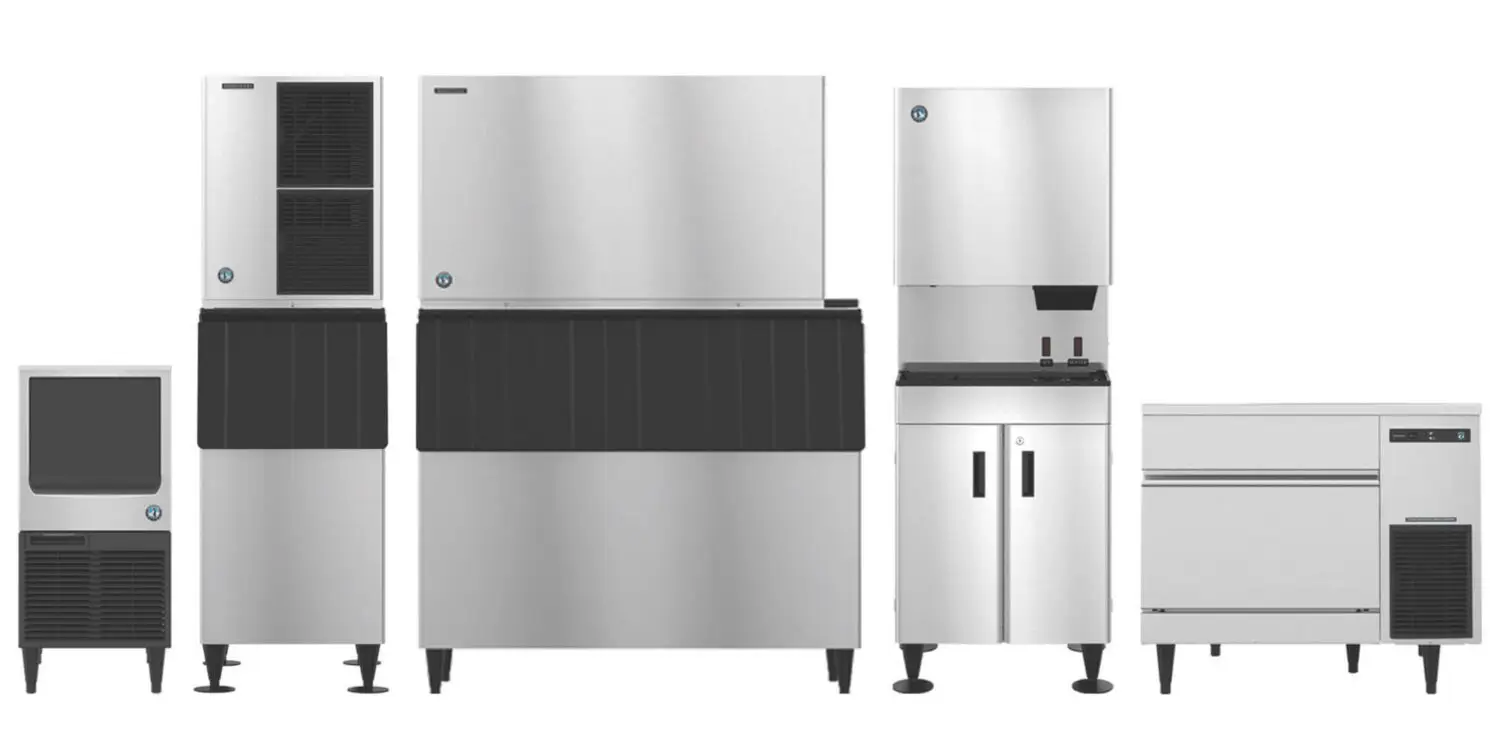
Healthcare Facility Ice Machine Servicing Tips for Reliable Cold Water
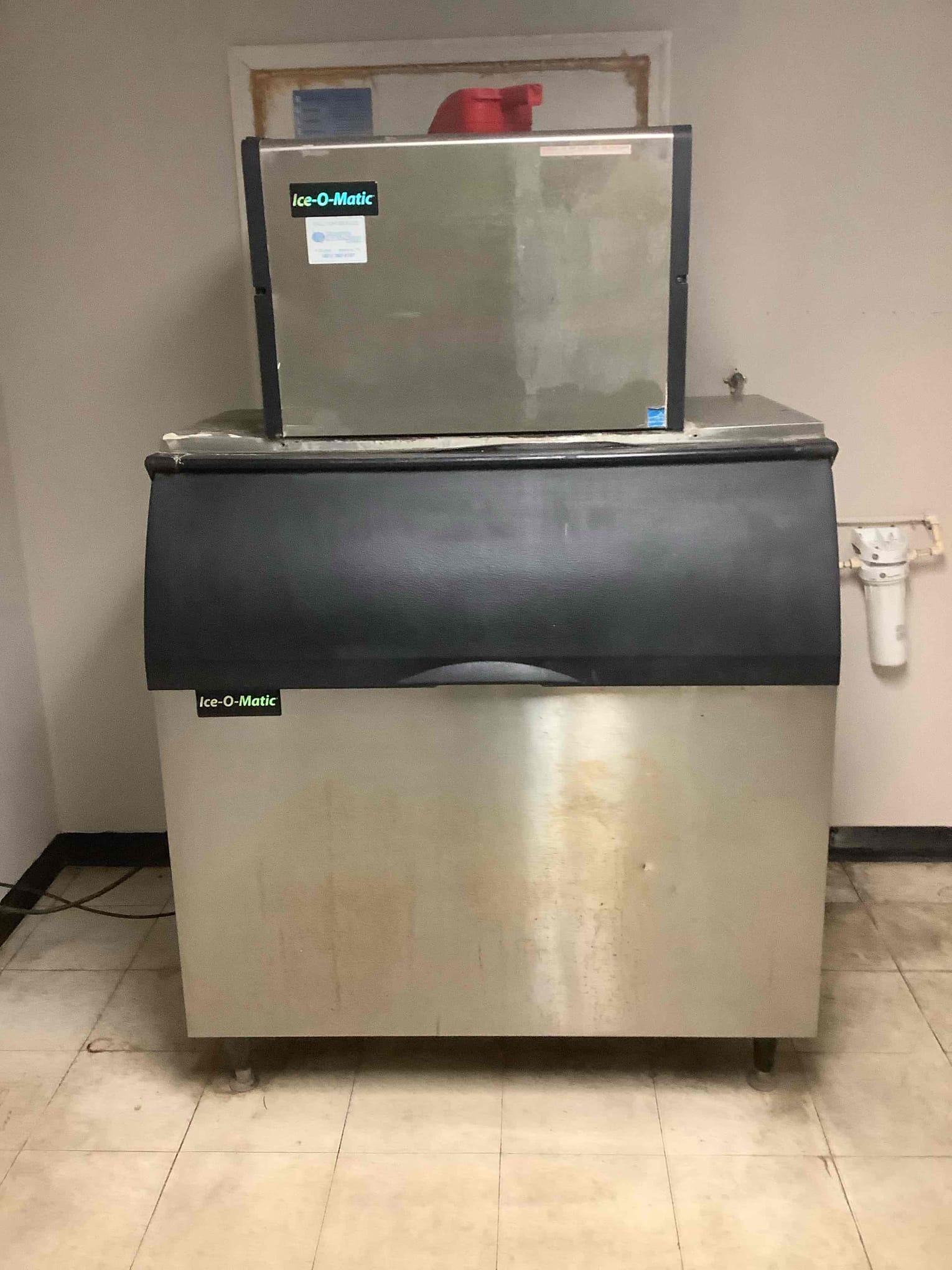
Factors That Impact Commercial Ice Machine Recovery Rate Explained Simply
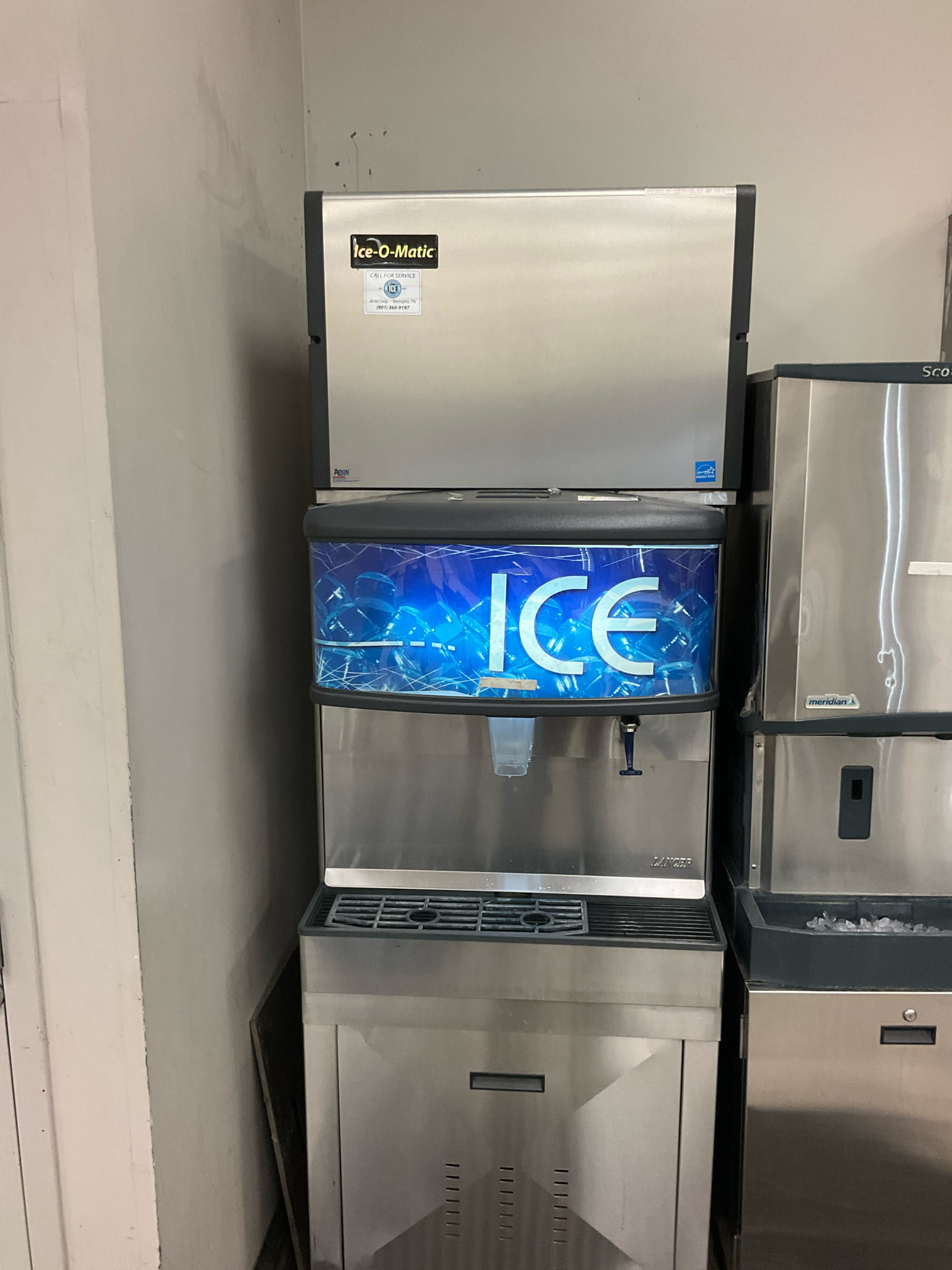
Signs Your Freezer Door Gaskets Need Replacement and How to Spot Them Early
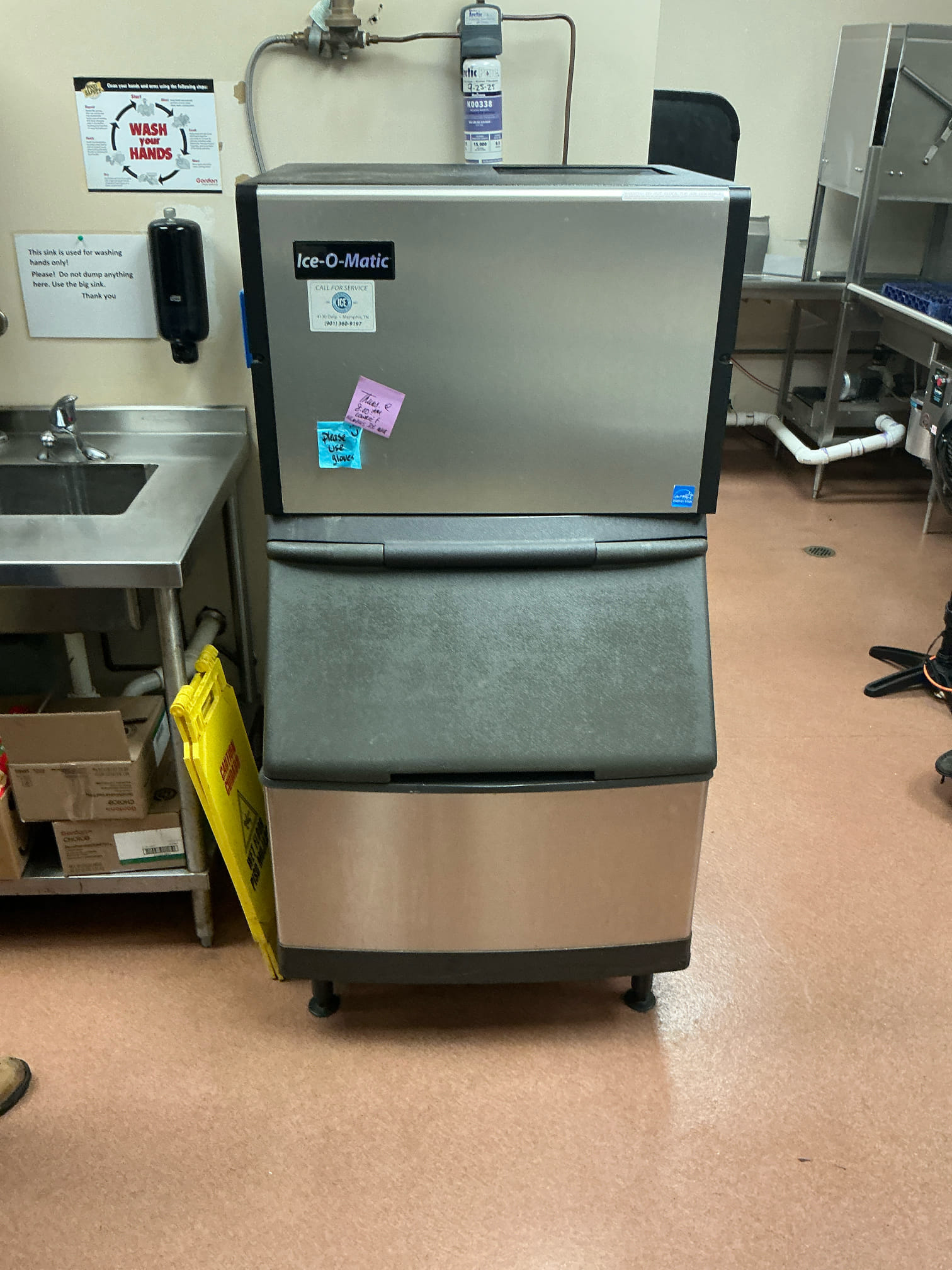
Signs Your Ice Machine Needs Deep Cleaning and How to Spot Them Early
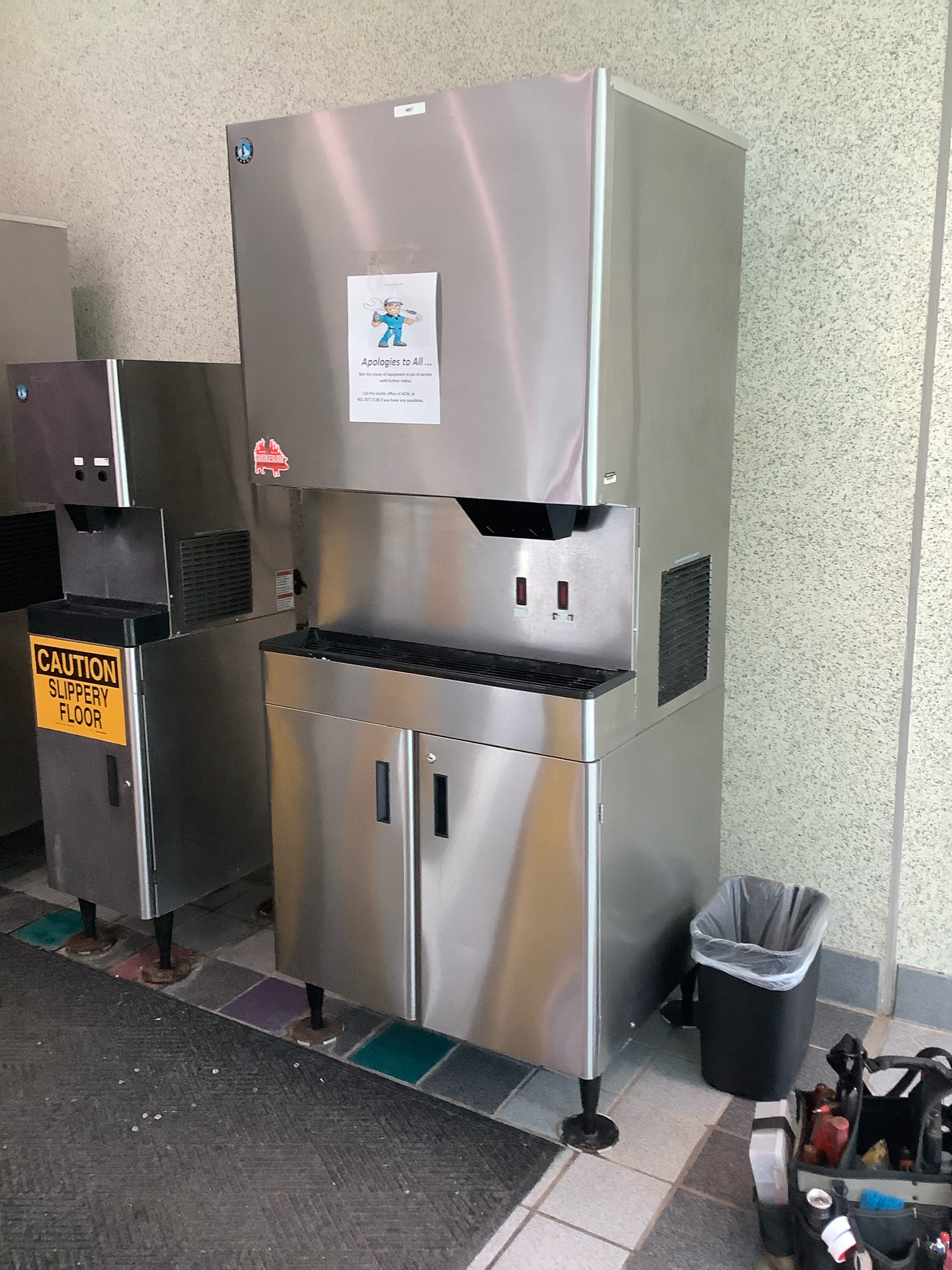
Signs Your Refrigeration System Is Undersized for Your Business and How to Fix It
